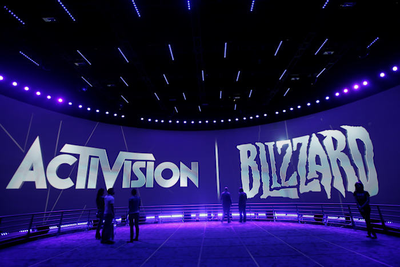
Summary:
In a significant development, Microsoft Corp. has settled a lawsuit filed by a group of gamers against the company's acquisition of video game publisher Activision Blizzard for $69 billion. The lawsuit was initiated in 2022 in a US federal court in San Francisco and had been pending for nearly two years.Introduction
Microsoft's acquisition of Activision Blizzard has been a subject of intense scrutiny, with concerns raised by rivals and government regulators about potential anti-competitive effects. The $69 billion deal was initially announced in January 2022 but took nearly 22 months to close due to these regulatory hurdles.Background
The lawsuit was filed on behalf of 10 individual gamers who are fans of Activision Blizzard's popular franchises, including Call of Duty, World of Warcraft, Overwatch, and Diablo. The plaintiffs argued that Microsoft's acquisition of Activision Blizzard would lead to a monopoly in the gaming industry, stifling competition and innovation.Settlement Terms
The terms of the settlement were not disclosed, but it was agreed upon by both parties that they would cover their own costs and fees. A court filing dated Monday confirmed the dismissal of the lawsuit, bringing an end to nearly two years of litigation.The settlement marks a significant development in Microsoft's acquisition plans, which have been met with opposition from various stakeholders in the gaming industry. The deal has raised concerns about potential anti-competitive effects, with some independent game developers worried that they will be sidelined as resources are allocated towards blockbuster franchises.
Industry Implications
The Microsoft-Activision Blizzard acquisition is part of a broader trend of consolidation in the gaming industry. This consolidation has led to concerns among independent game developers that they may struggle to compete with larger, more established companies.The settlement of the lawsuit provides some relief for Microsoft, which can now focus on integrating Activision Blizzard's portfolio into its existing gaming business. However, the deal still faces regulatory scrutiny from authorities in various jurisdictions.
Regulatory Hurdles
The $69 billion acquisition has faced opposition from regulators worldwide, with concerns raised about potential anti-competitive effects. The European Union and the UK have launched separate investigations into the deal, which may lead to further delays or even a rejection of the merger.The regulatory hurdles are not unique to Microsoft's acquisition plans; other gaming industry deals have also faced scrutiny in recent years.
Conclusion
The settlement of the lawsuit marks a significant step forward for Microsoft's acquisition plans, but the company still faces regulatory challenges ahead. The deal has implications for the broader gaming industry, with some independent game developers worried about potential anti-competitive effects.The future of the gaming industry remains uncertain, with consolidation and regulatory hurdles expected to continue in the coming months.